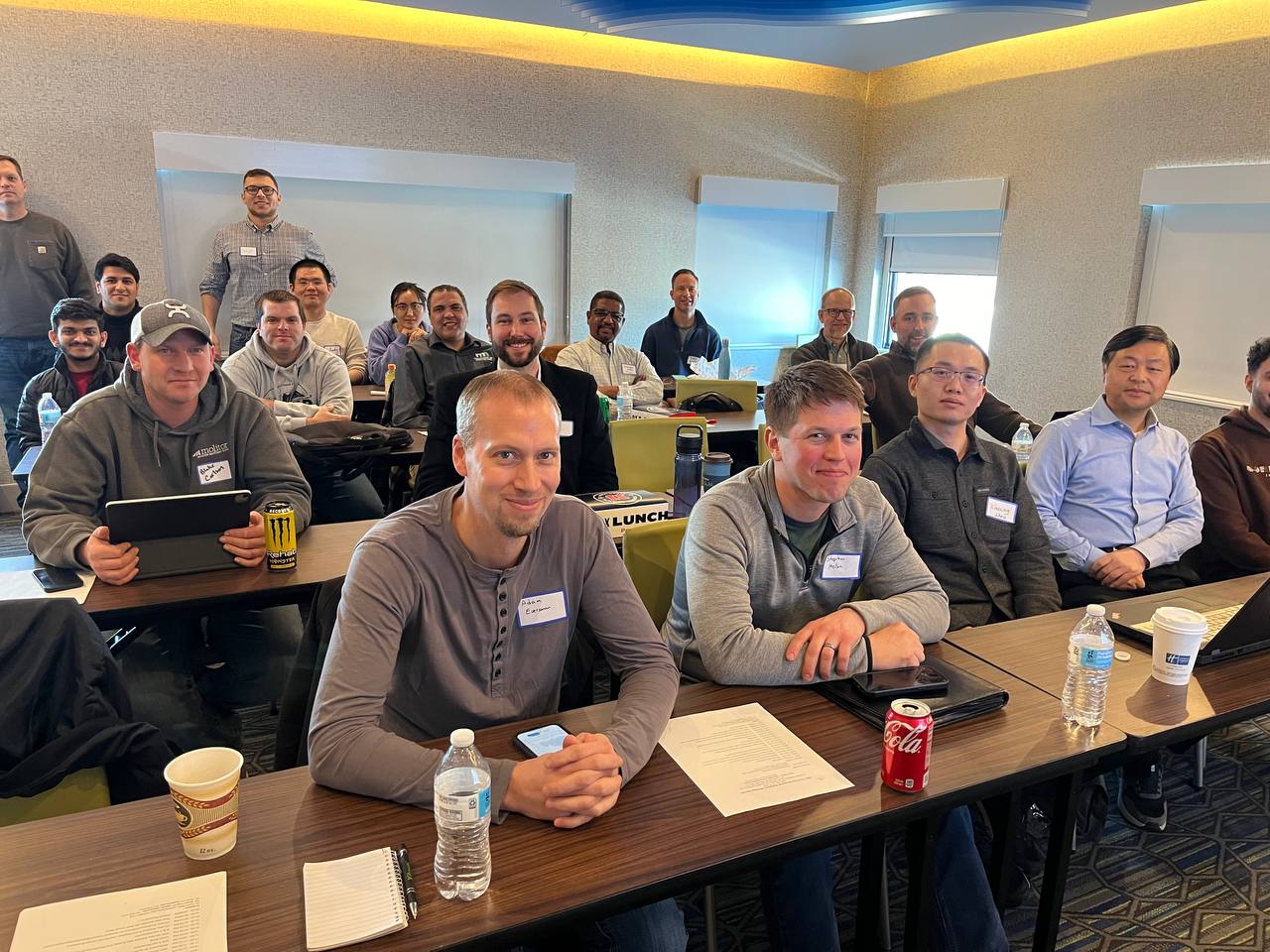
On February 15, 2024, the UMN Precision Agriculture Center organized the 2024 On-farm Precision Agriculture Research Network Meeting to share and discuss the results of 2023 on-farm precision agriculture trials and plan for 2024 on-farm trials. The participants included collaborative growers, crop consultants, university researchers, graduate students, an USDA ARS scientist, Minnesota Department of Agriculture scientists and industry collaborators. In addition to the in-person meeting, an on-line option was also provided to those who could not join in person.
Dr. Yuxin Miao started the meeting with a welcome and the participants introduced each other. Dr. Miao then introduced background and the 5SNM precision N management technology developed by the Precision Agriculture Center, preliminary findings of the 2021-2022 on-farm N trials, the adjustments, and new updates from 2023 on-farm trials, including adaptations for practical on-farm applications, for fields with manure application with/without cover crops, and fields with irrigation. Dr. Miao also introduced 2022 variable rate sulfur trial results and other related trials.
Dr. Jacky Lu, postdoc at the Precision Agriculture Cener, presented the results of 2023 On-farm Precision N Management and Variable Rate N trials. The preliminary analysis results indicated that on average across the on-farm trials conducted in Minnesota in 2023, the 5SNM technology saved 16% N, increased 19% N use efficiency, and increased profit by $16/ac compared with farmer’s typical practice. Jacky also showed how soil-landscape variables influenced corn responses to N and the performance of the precision N management strategy.
Mr. Renzo Negrini, graduate student, shared the 2023 Variable Rate Sulfur trial results. It was found that the optimal sulfur rates varied from 0 to 40 lb S/ac not only from field to field, but also within each field. The spatial pattern of optimal S rates was not only influenced by soil organic matter, but also by soil texture, S application history, and soil-landscape conditions, etc. The potential benefit of variable rate S management varied from $29-42/ac in the fields of 2023 trials.
Dr. Kirk Stueve, as a cooperative grower, shared the value of collaborative on-farm trials and his appreciation for the opportunities to test new technologies and discuss the on-farm trial results together.
Mr. Ayoub Kechchour, graduate student, first shared the progress of the web-based precision N management decision support tool, which can automate the preplant N strip design and in-season N prescription. He gave a demonstration of how the tool would work. This platform can greatly facilitate the adoption of this technology by farmers and can be a valuable tool to assist crop consultants with in-season N recommendations.
Ayoub then presented the 2023 Variable Rate Seeding trial results. In most fields, the overall average yield response to seeding rate was negative. However, optimal seeding rates varied significantly within each field and the average benefit of variable rate seeding ranged from $34-67/ac. Precipitation and topographic attributes are important factors influencing optimal seeding rates.
Ayoub also shared the results of a trial integrating variable rate irrigation and N management, which increased N and water use efficiency at the same time.
Mr. Charles Smith, Founder and CEO of IMIO, introduced the Re-gen bio-stimulant that can increase the mineralization of crop residuals and other organic materials, potentially increase nutrient bioavailability and crop yield.
There was a time for overall discussions after the presentations and Dr. Yuxin Miao shared different ideas for 2024 on-farm trials and concluded the meeting at 3 PM. A report will be prepared for each on-farm trial and shared with each farmer and consultant in follow-up meetings.
This is an annual event to facilitate interactions among researchers, extension educators, growers, crop consultants, industry service providers, and governmental researchers and policy makers. With this closer relationship, we can better understand the complexity of the issues producers face daily, share experiences and insights, and work together to develop innovative solutions, leading to a thriving and sustainable farming community.